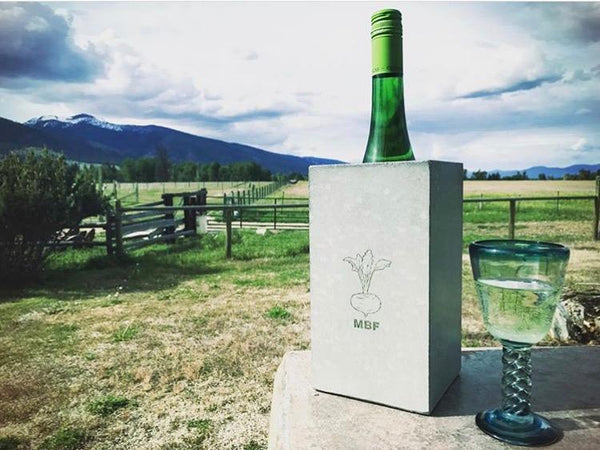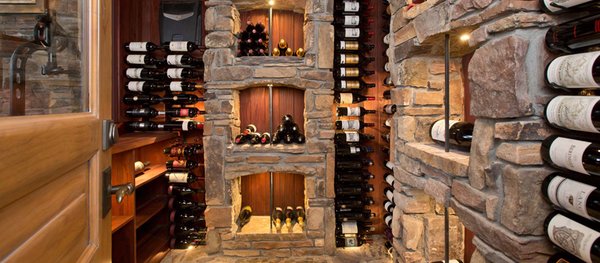Why Boxed Wine Does (and Doesn’t) Scare Me
Boxed wine is no longer a new phenomenon, but how it fits into the wine culture is still a topic of discussion. I recently came across an article on the Capital Gazette that says “winemakers are ramping up sales of box wines in an attempt to attract consumers between ages 21 and 34. The theory is that millennials and even younger drinkers did not grow up with bottled wines so they are more open to non-traditional containers.”
As a businessperson who crafts and sells products centered on bottled wine, I could argue that this makes me nervous. But, it doesn’t. Why?
Boxed wine has its place, but I don’t believe it will ever fully replace bottles or casks.
1) Its flexible and durable shape (namely the nature of the plastic bladder inside the box) makes it great for backpacking, fishing, floating—all the things I love to do.
2) It can be ideal for daily table wine as the bladder can –if kept at a stable temperature—preserve the wine longer than an open bottle can.
3) The quality of boxed wines has markedly improved in recent years, so you aren’t necessarily compromising flavor when buying a box.
4) Boxes can be particularly appealing to those selling wine, because they are easier and cheaper to fill and ship—as well as less likely to acquire damage in shipping—all factors that contribute to a higher profit margin.
BUT
Boxed wines are more susceptible to heat. Research has shown that when exposed to warmer temperatures, your boxed wine will decline much faster than bottled wine. Therefore, the box, while friend to the quick drinking table wines, is no friend to the aged wines—you know, the types of wines that have the power to enhance, transform and imprint into your memory a fabulous meal or special occasion—those lovely times with wonderful folks.
Sure, that sentiment may be lost on the younger set—but I am not entirely convinced of that either—I’ve met a few sophisticated and sensitive millennials who have an eye for details that I lacked at their age (due in part to the blurry vision of a little too much wine).
What Scares Me
There are a lot of claims out there that boxed wine is more sustainable than glass. It’s a great notion (and marketing ploy) and sometimes it’s true, but not always—because most of these arguments are centered on the transport component of the carbon footprint.
Yes, boxed wine is lighter and therefore, cheaper to ship. Less fuel. Whoohooo! That’s great. But from my perspective, that’s about where the clear advantage of boxed wine ends and we enter a gray zone of the classic sustainability debate proportions.
1) Consider the reduce, reuse, recycle principle.
What, reduce my wine consumption? Okay, we know that’s less likely to happen. But yes, reducing packaging is a possibility. This is where big boxes of wine might have an advantage—it’s the notion of buying bulk at play—but still it’s not clear that the environmental costs of producing that packaging are less—and I would argue they are more (see below for more on that).
So, then we get to reuse. There was a time when glass soda bottles were returned, sterilized and reused. Not anymore. (I say bring it back!) But, they are more likely to be reused directly by the consumer because they are easier to clean and can serve a variety of functions. Whereas, wine boxes and their bladders? Not so much. AND if one ventured to do so, they’d have to contend with a greater likelihood that harmful bacteria would grow in the plastic, because of the wrinkles, crevices and humidity in the body of the container as well as the nooks and crannies of the opening. Glass bottle? Pretty darn easy to clean, even at the mouthpiece, and much more resilient at high heat—its structural integrity won’t be compromised and it won’t leach weird compounds which certain forms of plastic can (see #2 for more on this).
Finally, let’s talk recycling. There are two key factors one should consider when talking about recycling.
- Just because it appears to be recyclable, doesn’t mean it actually is. This goes for both glass and plastic. Putting it in a recycling bin doesn’t necessarily mean it will be recycled. In many cases, it is still turned into a different product through an energy and resource draining process equal to or worse than what it cost to create it to begin with. This is more likely to happen with plastic than glass.
- IF it can in fact be recycled, how far does it travel to the facility? Consider your local resources.
There are a couple of really insightful and helpful resources regarding this. I encourage you to read them—they are highly enlightening.
2) What about the health risks of plastic? Your body is the environment. The environment is your body. Yes, it has been shown that plastic can harbor harmful bacteria, particularly in the reuse scenario. That’s one concern. But the greater concern is the issue of leaching harmful chemicals into your system and the environment—we are talking about altering things at a fundamentally molecular level. Science does show that the type of polyethylene used for things like wine box bladders poses a low risk to human health. So, many would argue that it is safe. But one could also argue that the fact that the question is not IF but HOW MUCH of a risk it poses is enough to avoid it altogether. On that front, glass is much less toxic and for my family and me it wins, hands down. The Glass Packaging Institute is a great resource for learning more.
But again, this isn’t a black and white issue. Greenopolis has a great post that illustrates this well.
I can appreciate the nuances of this debate and I can make choices based on circumstance, the resources at hand and just plain gut instinct. That’s why boxed wine scares me, and it doesn’t.
Leave a comment
Comments will be approved before showing up.
Also in News



